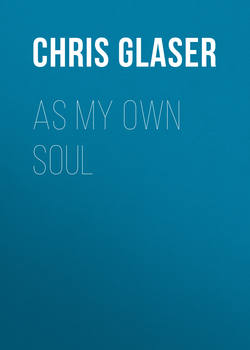As My Own Soul

Описание книги
With the removal of sexual orientation as a bar to ordination in the Presbyterian Church (U.S.A.), pending approval of a majority of presbyteries, and the Episcopal Church’s 2009 General Convention calling for the development of theological and liturgical resources for same-sex blessings, sexual orientation—especially with regard to marriage—is a central issue. Secularly, too, the topic is front-page news with the recent California same-gender marriage ruling and subsequent Proposition 8 vote and the update of the Massachusetts same-gender marriage law.
This book sets forth the case for religious institutions’ blessing of same-gender marriage, positing that same-gender marriage does not detract from the sacredness of heterosexual marriage, but rather enhances and nourishes the institution.
Chapters include: • Claiming the Blessing • Deeper Than Scripture • Traditional Family Values • The Sacred Source of Marriage • Sex and the Body of Christ • Marriage As a Spiritual Discipline “Marriage is a spiritual discipline in which we come to know ourselves as beloved, trustworthy, redeemed, forgiven, and blessed, and at the same time learn how to love, be faithful, redeem, forgive, and bless the partner as well as the community.” —Chris Glaser
Отрывок из книги
Other books by Chris Glaser:
Uncommon Calling
.....
On behalf of the new Confederate denomination, a theologian declared, “Whatever is universal is natural. We are willing that slavery should be tried by this standard.”17 Because slavery was commonly practiced, historically and cross-culturally, it was considered “natural.” The common practice of heterosexual marriage historically and cross-culturally also argues for it being “natural” for all. We may concede it being the norm at the same time realizing it may not be natural for those with a homosexual orientation, no more than slavery would be considered “natural” by the slaves themselves. We may compare it to patriarchy, which has been nearly universally practiced, or to men having multiple wives, which was permitted in 980 of 1,154 past or present societies for which there is an anthropological record.18
In 1954, southern Presbyterians adopted desegregation ten days after the U.S. Supreme Court essentially ruled the same in Brown v. Board of Education.21 Despite coming afterward, the southern denomination nonetheless acted prophetically because most of the South would resist the court's decision. What the court adjudicated on constitutional grounds, the church adjudicated on biblical and confessional standards. The church did not follow the culture, but found its own way to the same conclusion, even at risk of alienating its primary mission field. There is no ruling yet on same-gender marriage from the U.S. Supreme Court, though it did decline to hear an appeal of the Massachusetts’ Supreme Court decision, which had said, in part, “The marriage ban works a deep and scarring hardship on a very real segment of the community for no rational reason… . We construe civil marriage to mean the voluntary union of two persons as spouses, to the exclusion of all others.” The states have regulated marriage with two notable exceptions, when the U.S. Supreme Court struck down polygamy in Utah and later struck down laws against interracial marriage in seventeen states. Affecting fewer people, the court also found in favor of a prisoner marrying without a warden's consent. As with desegregation, if and when the church decides to bless same-gender marriages, it will do so independently and for its own reasons. Whether or not the church will prove prophetic in this area remains to be seen.
.....
